Geoffrey Philips
Geoffrey was born in Germany in 1925. Geoffrey escaped on the Kindertransports to England via Holland in 1938. He never saw his family again. He came to Ireland in 1951. Geoffrey passed away in August 2011.
Before the Kindertransport
Geoffrey (Günther) Phillips was born in Wanne-Eickel, Germany, in 1925. His father, a veteran of the First World War, was a butcher whose thriving business was ruined by the Nazi boycott of Jewish businesses and by discrimination against Jews during the 1930s.
In a town where the Jewish community had been completely integrated, a climate of intimidation and violence began to emerge. In school Jewish children were segregated from their Christian peers; violence against them was common and sometimes even encouraged by the teachers. No matter how clever Jewish students were at school it was ensured that they failed or barely passed their exams. Many teachers actively encouraged physical violence against Jewish students. We always had to walk to school in groups of five or six, because if you were on your own, you might end up getting stones thrown at you or getting a good hiding.
After Kristallnacht (9 November 1938), when there were violent nationwide pogroms against the Jews and their property in Germany and German-controlled lands, the British government was persuaded to accept German, Austrian and Czech child refugees aged from a few months to 17 years to enter Britain on block visas. Funds were raised, guarantors were found. The whole operation was handled by a small, dedicated team of volunteers who worked together – Jews, Christians and especially Quakers. Approximately 10,000 children arrived on special trains via Holland, known as Kindertransports, which operated from 2 December 1938 until the outbreak of war on 1 September 1939.
We heard that our synagogue had been set on fire by squads of Hitler Youth and that the same thing was happening all over the country. Before we had recovered from the shock of this terrible news, there was knock on the door. Two plainclothes policemen asked for my father, told him to pack a change of clothes, and took him away. We heard afterwards that my father had been taken to a concentration camp. A cousin of my father’s was a welfare officer of the Jewish community in a neighbouring town. From her we discovered that Britain was prepared to take in a limited number of young Jewish children. Our cousin urged my mother to register me for the transport.
Carrying only a small suitcase and a bag of provisions, Geoffrey left his family and boarded a Kindertransport train on 15 December 1938. He did not know where he was going. The train took him across the border to Holland and from there a ferry brought him and the other children to Harwich in England. The children were moved around and eventually Geoffrey was able to settle in Bradford. During the war he changed his name to Geoffrey and worked in a textile mill.
As soon as he was old enough, Geoffrey enlisted in the British army. He hoped to be able to find his parents alive and, in July 1943, returned to his hometown. His family, however, had already been rounded up and deported to their deaths. After his military service, Geoffrey returned to Bradford, where he married Phyllis Moore and they had three sons. He moved to Dublin in 1951, where he set up a textile factory.
Phyllis passed away in 2006 and Geoffrey passed away in 2011.
Children on Kindertransports
Image: Claims Conference
Read about other survivors’ stories.
-

Tomi Reichental
-

Jan Kaminski
-

Inge Radford


